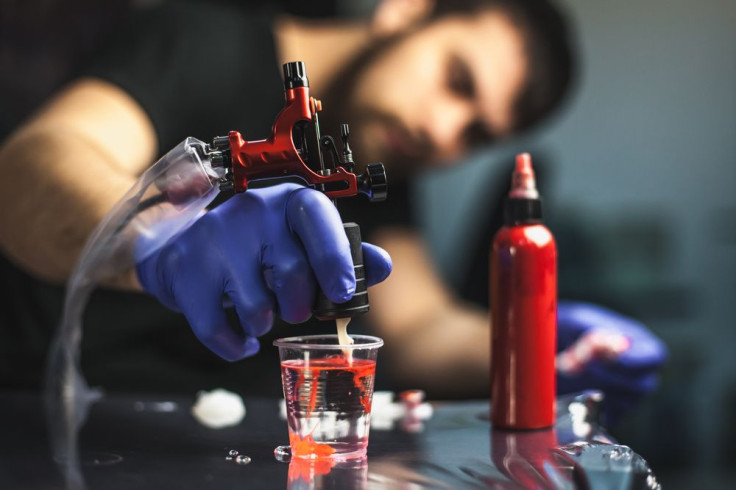Tattoo Care: Many People With Tattoos Experience Some Long-Term Medical Complications

Many “inked up” Americans experience tattoo regret as their skin begins to age, but some experience that regret immediately after getting their new body art. A recent study conducted at NYU Langone Medical Center has revealed that six percent of New Yorkers with a tattoo have experienced long-term medical complications related to their ink, including tattoo-related rash, severe itching, or swelling.
"We were rather alarmed at the high rate of reported chronic complications tied to getting a tattoo," Dr. Marie Leger, an assistant professor in NYU Langone's Ronald O. Perelman Department of Dermatology, said in a statement. "Given the growing popularity of tattoos, physicians, public health officials, and consumers need to be aware of the risks involved."
Leger and her colleagues conducted survey interviews with around 300 adults in New York’s Central Park in June 2013. Survey respondents were between the ages of 18 and 69, the majority of which had no more than five tattoos. Sixty-seven percent of tattoos were located on the arm, making it the most popular tattoo site. Leger estimates that one in five adults in the United States has at least one tattoo.
Ten percent of respondents experience some type of short-term complication, such as delayed healing, pain, swelling, and infection, within weeks of getting their tattoo. Among the respondents who did experience a reaction, only a third sought help or advice from a medical professional. Long-term medical complications, including rashes, severe itching, and swelling, lasted longer than four months in some cases and even years.
"It is not yet known if the reactions being observed are due to chemicals in the ink itself or to other chemicals, such as preservatives or brighteners, added to them, or to the chemicals' breakdown over time," Leger explained. "The lack of a national database or reporting requirements also hinders reliable monitoring."
Researchers involved with the study were surprised to find out how much of an impact the ink’s color can have on long-term medical risks. Long-term complications occurred around areas of the skin that were injected with the two most common ink colors, red and black. Although 36 percent of respondents had tattoos with red ink, 44 percent of reactions were associated with red ink. A third of complications were tied to black ink, which accounted for 90 percent of tattoos.
"The skin is a highly immune-sensitive organ, and the long-term consequences of repeatedly testing the body's immune system with injected dyes and colored inks are poorly understood," Leger added. "Some of the reactions appear to be an immune response, yet we do not know who is most likely to have an immune reaction to a tattoo."
Leger plans on devoting further research to exploring what colored inks and possible dye components lead to adverse reactions. She also noted that most reactions can be treated with anti-inflammatory steroid drugs; however, in some cases laser surgery is required.
Source: Contact Dermatitis. 2015.



























